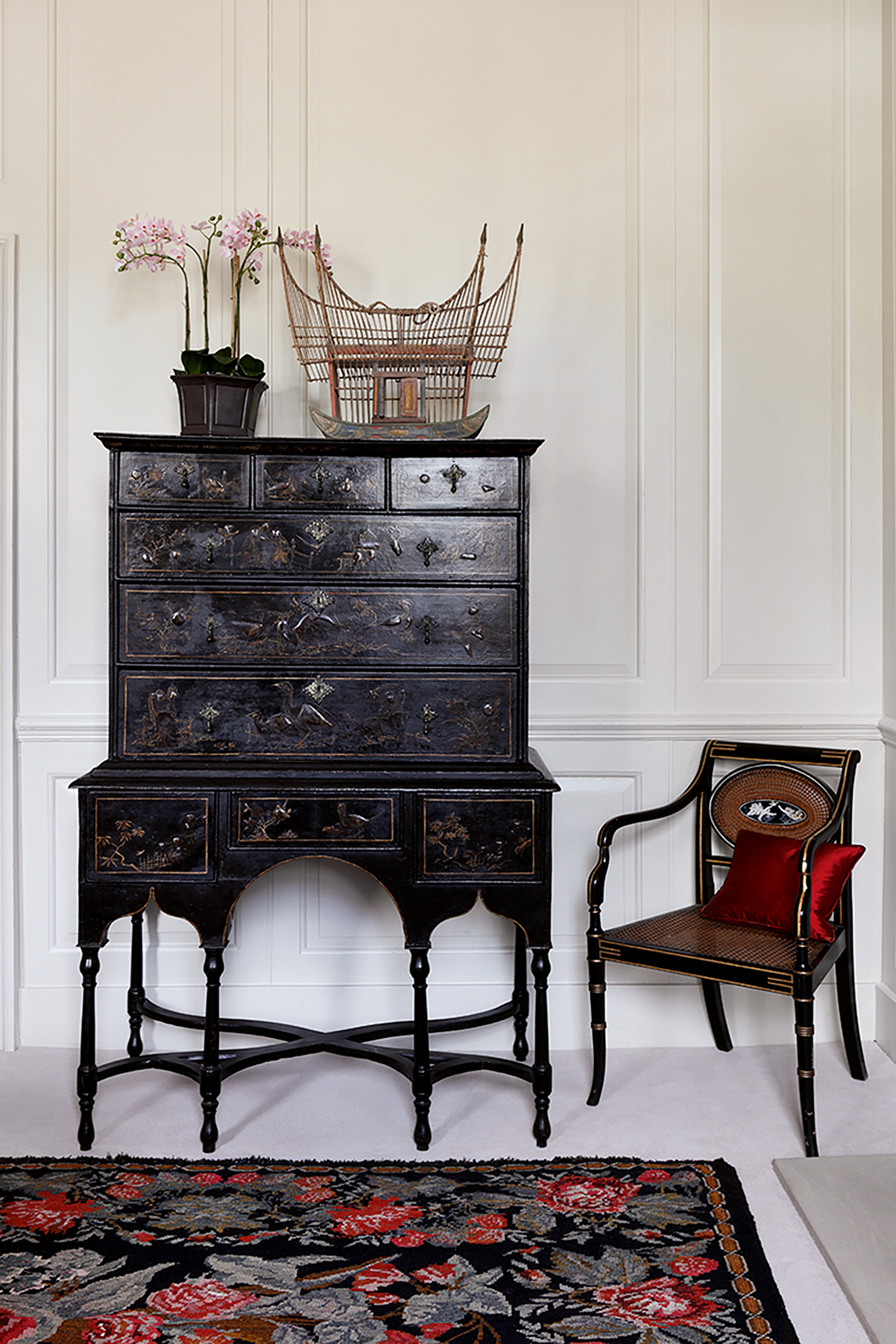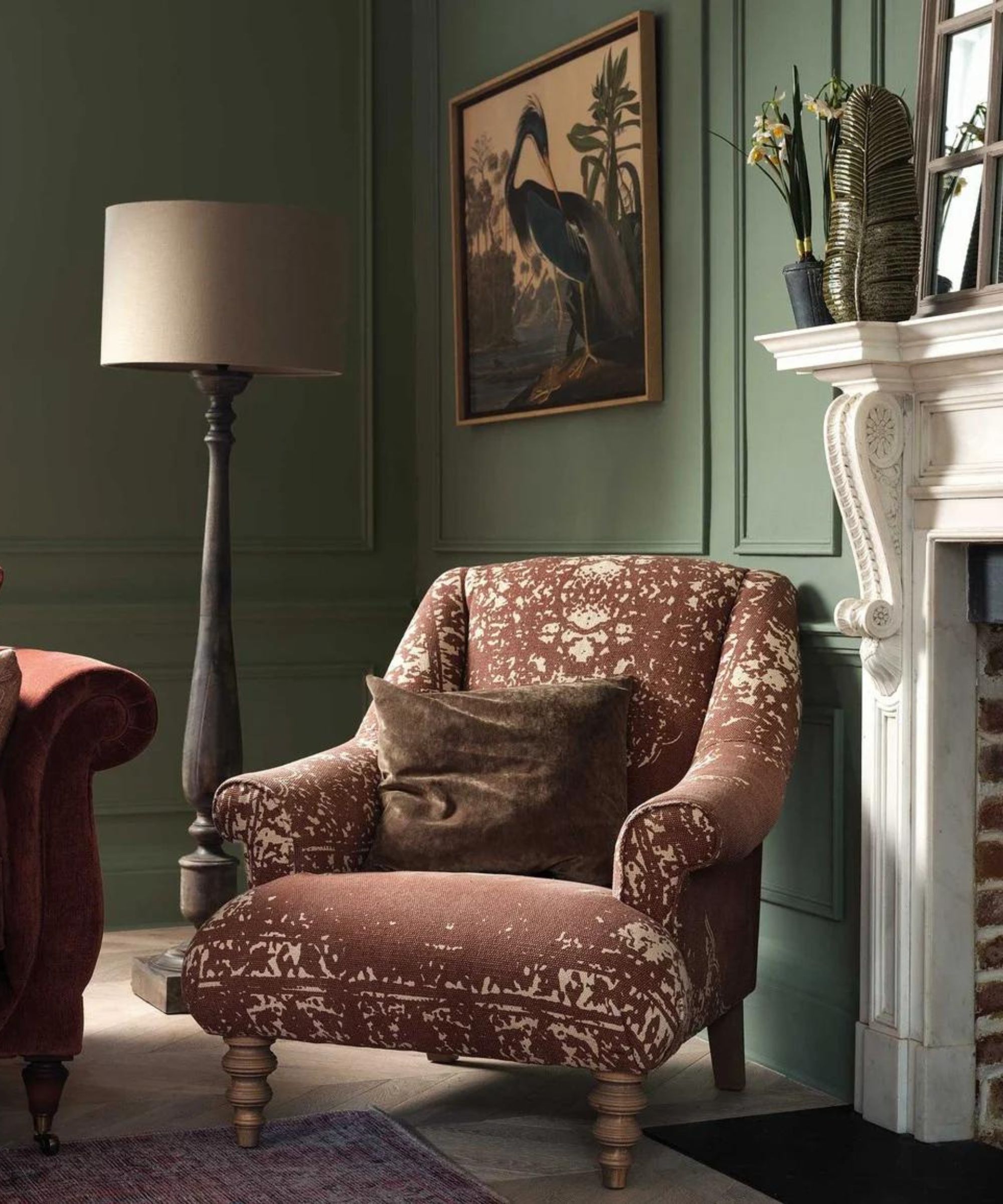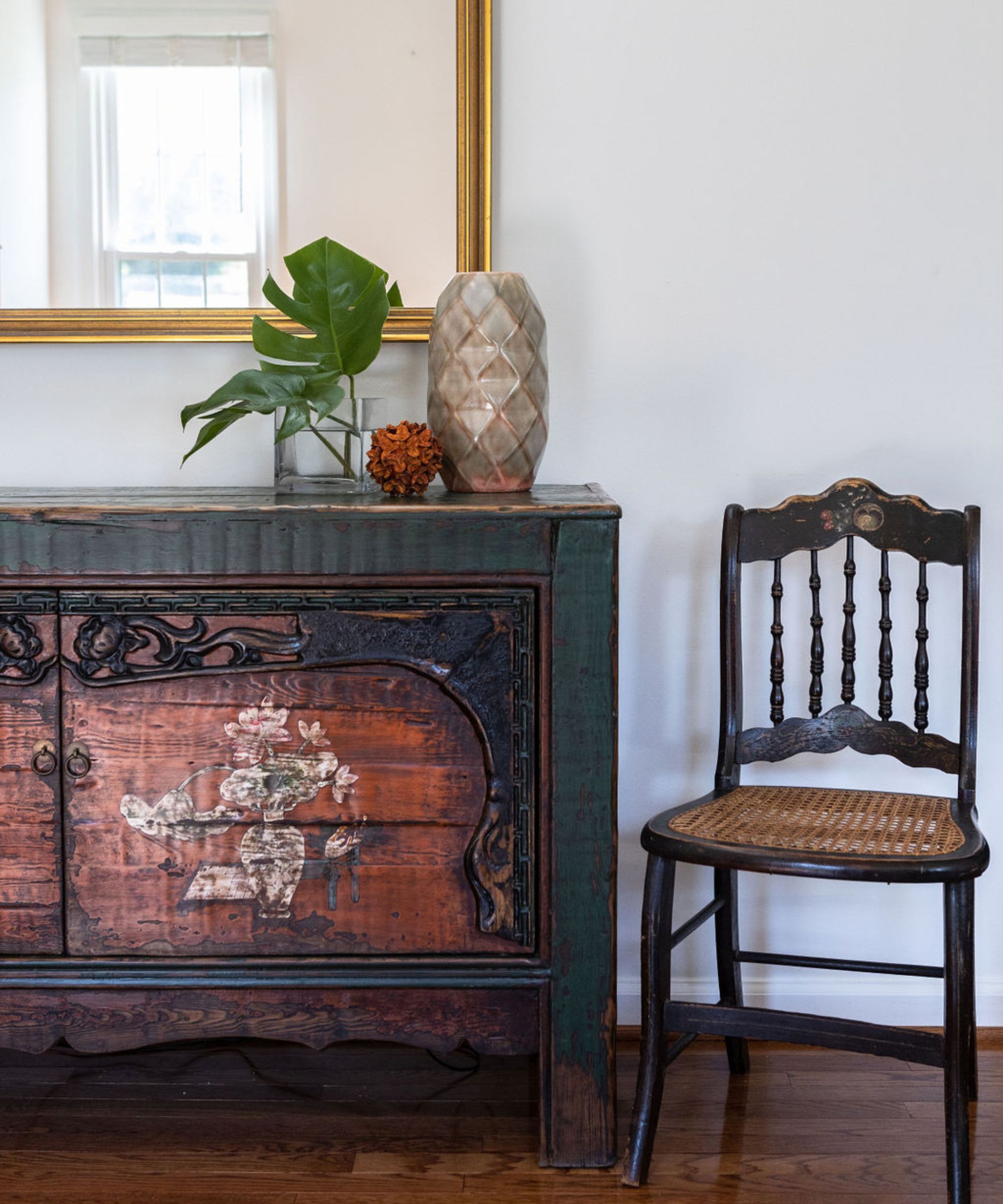How to care for antique furniture – 4 steps to preserve its natural beauty
These four steps will ensure your antique pieces retain their beauty for generations to come


Antiques may have stood the test of time to end up in your home, but they need continual care and attention to remain in top condition.
It is hard to achieve the same cozy effect of decorating with antique furniture without investing in the real thing, but the last thing you’ll want to do is add pieces that will extend your household cleaning checklist.
Luckily, antiques experts have perfected the art of caring for older pieces, whittling the process down to four simple steps.
How to care for antique furniture
One of the best ways to ensure antique pieces last in your home is to look out for damage when shopping for antique furniture. If you are looking to get away with only maintaining antique pieces, rather than restoring them, it is best to purchase pieces that are already in good condition. Looking out for signs of excessive wear, woodworm, or improper finishes will ensure that you are buying a piece that will last in your home.
1. Keep an eye out for woodworm

The worst thing a piece of antique furniture can suffer from is woodworm, but it is often overlooked, leading to it silently destroying prized pieces.
George Hadlet, antiques expert and founder of Village and Cottage, explains that the first vital signs you should look out for are small piles of sawdust near your pieces and round holes appearing across the item, being sure to check beneath.
When you spot the signs, the next step is to restore the wood furniture and kill the infestation without damaging the piece, George explains:
Design expertise in your inbox – from inspiring decorating ideas and beautiful celebrity homes to practical gardening advice and shopping round-ups.
‘Based on the woodworm species and infestation severity. While some may opt for DIY treatments which can be a simple woodworm spray killer, professional help is advisable in severe cases.
‘Ultimately, prevention is the best cure,’ he shares. ‘Keep your antique furniture in dry and well-ventilated conditions. Damp is a breeding ground for woodworms. Then, periodically check its condition and treat it every six months with woodworm treatment – my favorite is a spray version as it's easier to apply, it's non-toxic and odor-free.’
2. Clean sparingly

Tetrad Jacaranda Accent Chair, from Barker and Stonehouse
As with any furniture, antiques need general cleaning to free them from dust and grime. That being said, when cleaning wood furniture, it is best to stick to wiping it down with a microfiber cloth and staying away from water unless necessary.
‘The less you do, the better,’ says Helaine Fendelman, fine art approver and antiques expert at Helaine Fendelman & Associates. ‘Use soft cotton clothes to clean the surface dirt. Make sure the cloths do not have lint that might stick and pull off any veneer or become stuck on pieces of hardware, and be aware of wood that may be ready to lift off when sliding a cloth over it,’ she advises.
Her main cleaning tip is to not attempt to clean antique upholstery by yourself. To avoid damaging delicate fabrics. ‘Always ask experts to assist you,’ she urges.

Helaine Fendelman is a generalist antiques, fine arts and collectibles appraiser, author, instructor and co-host of a PBS affiliated television show
3. Condition antique pieces to protect the wood

Waxing and conditioning your antique pieces is not just reserved for refinishing wood furniture. It is an essential step in keeping the wood from drying out and warping.
‘To condition antique furniture, it's recommended to use a wax finish. Wax not only helps preserve the original finish but also cleans any old dirt and keeps the furniture looking attractive,’ explains Shlomo Cherniak, professional handyman owner of Cherniak Handyman Services. ‘Apply the wax correctly to avoid streaks, smudging, and dullness. Be sure to follow the instructions for applying wax to your specific furniture.’
Experts recommend waxes such as Feed-N-Was Beeswax by Howard Products, from Walmart.
4. Avoid direct sunlight

Sunlight is the enemy of antique pieces. Whenever you go to a stately home or a museum, you will likely notice the curtains and shades drawn to keep the original pieces out of the sunlight. Helaine Fendelman, antiques expert, suggests following the same protections for your personal collection. While you don’t need to live in the darkness, positioning pieces so that the light avoids them is a must:
‘Pieces of furniture should not be put into direct sunlight. What’s more, the temperature of the room in which the piece sits should be constant and not vary from very hot to very cold. Humidifiers may be needed to help stabilize the dryness of the room.’
FAQs
Should you wax or oil antique furniture?
When caring for antique furniture, it is best to use antique methods to keep it in top condition. Waxing the piece with traditional methods such as beeswax will help keep the wood in good condition without coating it in modern spray polishes that can damage the luster over time. Beeswax will help to bring out the original color and grain.
What is the worst thing you can do to antique furniture?
When you own antique furniture, the worst thing you can do is neglect it. Unlike modern furniture, antiques need care and attention to help keep them in good condition, from cleaning them carefully to oiling the wood, preventing cracks, and deterring pests. Neglecting the piece will cause it to deteriorate slowly, decreasing its use and value in your home.
If your antique furniture pieces ever discolor or deteriorate beyond general maintenance, then it is best to consult a professional to help bring the piece back to its original condition. Trying to restore the piece yourself could lead to further damage, possibly even devaluing the piece completely.

Chiana is Homes & Gardens’ kitchen appliances editor. With a lifelong passion for cooking and baking, she grew up experimenting in the kitchen every weekend with her baking-extraordinaire Mom, and has developed a great understanding of how tools and appliances can make or break your ideal relaxing kitchen routine.